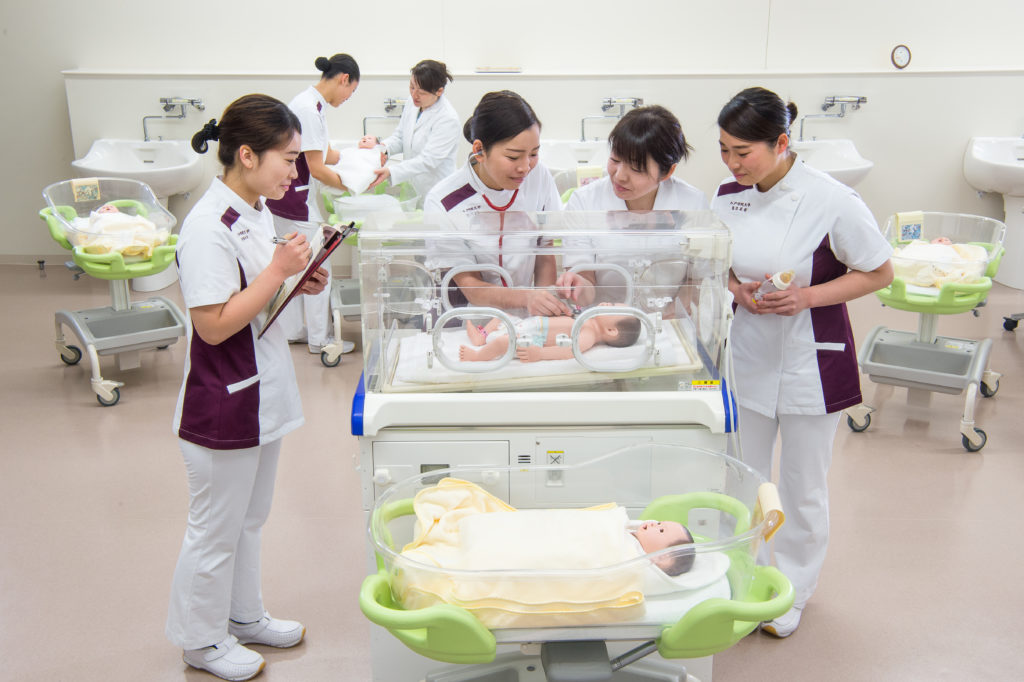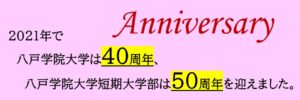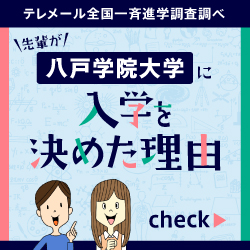Faculty of Health Care, Department of Nursing
Philosophy, Purpose, Educational Objectives, Policy

Educational Philosophy
Develop human resources who can explore comprehensively from an interdisciplinary point of view on health and medical care.
Purpose
We aim to foster human resources with rich sensibility and human nature, capable of responding to the day by day challenges of nursing care with the appropriate knowledge and skills. We strive to develop highly qualified personnel who can contribute as a practicing nurse to local health and medical activities, as well as general health promotion.
Educational Objectives
- Train nurses capable of practicing nursing care based on a scientific basis with rich human nature, high ethical standards, subjective judgment and behavioral power.
- Cooperate and collaborate with other medical-related occupations in order to train nurses who can actively judge and act on the role of nursing within community health workers.
- With an understanding of regional characteristics such as remote areas and depopulated areas, train nurses who can actively engage in research on community nursing activities.
Three Policies
Diploma Policy (Graduation Certification / Degree Award Presentation Policy)
- Students acquire rich human nature, high ethical standards, subjective judgment, behavior and communication skills, understanding regional culture and characteristics.
- Practicing basic nursing care based on scientific evidence and acquiring the ability to judge and act in cooperation with and collaborating with many other medical-related occupations in order to determine the role of nursing.
- With an understanding of regional characteristics including remote areas and depopulated areas, students shall acquire basic practical nursing abilities and become capable of positively addressing regional nursing activities.
- With an understanding of the health characteristics of local residents, students will develop basic research methodologies in order to contribute to the improvement of community nursing activities.
Curriculum Policy (Curriculum Development and Implementation Policy)
- Various liberal arts subjects, including compulsory courses in language and regional culture theory have been arranged in order to cultivate an understanding of regional culture, to develop rich humanity, a high ethical viewpoint, subjective judgmental power, the power to act, communication ability, the subject related to the spirit of construction, foundational exercises, Japanese literacy, and a foundation in information processing.
- In order to cultivate the basic knowledge and practical ability necessary for entering the nursing profession, specialized introductory subjects and specialized basic subjects have been established, as well as the two courses of study of “Humans and Health” and “Environment and Health”.
- Five areas of study in “Nursing Fundamentals”, “Nursing Development”, “Integration of Nursing and Development of Nursing”, “Nursing Research”, and “Public Health Nursing Care” consist of specialized subjects to allow for the acquisition of viewpoints and ideas within these different fields.
- In order to obtain national examination national exam examination qualification, our curriculum is based on educational contents for both nurses and public health nurses.
Admission Policy
Acceptance of applicants who have a strong will to become a nurse / public health nurse, and act actively as a member of a medical-related occupation in the future and who are highly motivated to be engaged in regional nursing activities.
[Specific acceptance policy of the Department of Nursing]
- The applicant has motivation to refine their knowledge of and empathy towards people, and to build assistive relationships.
- The applicant has strong motivation to learn autonomously the views and ways of thinking of nurses / public health nurses, and learn about basic nursing skills, nursing theory, and nursing practice in various situations.
- The applicant has a high motivation to acquire fundamental research methodologies that can contribute to the community of nursing activities through cooperation and collaboration with other medical-related occupations.
- In addition to continuing to develop skills in the basic high school subjects of “Japanese” and “Foreign Language (English)”, the applicant will also choose to studying one additional subject in “Basic Biology”, “Mathematics Ⅰ”, or “Mathematics A”.
【Method of judgment in enrollment selection】
- The applicant’s willingness to understand and sympathize with people, as well as hone their intellect and sensitivity and motivation to build assistive relationships, will be judged by document examination, essay, and interview.
- The applicant’s ability to develop a viewpoint and way of thinking as a nurse / public health nurse, learn basic nursing skills, nursing theory, and a strong willingness to subjectively learn nursing practice in various places will be determined by document examination, essay, and interview.
- The applicant’s motivation to acquire fundamental research methods that contribute to the community of nursing activities by cooperating and collaborating with other medical-related occupations will be judged by document examination and interview.
- 4. In regard to the applicant’s aptitude and desire to continue to develop skills in the basic high school subjects of “Japanese” and “Foreign Language (English)” , as well as electing to concentrate study in one of the fields of “Basic Biology”, “Mathematics Ⅰ”, “Mathematics A” will be judged by document examination and examination of academic ability.












